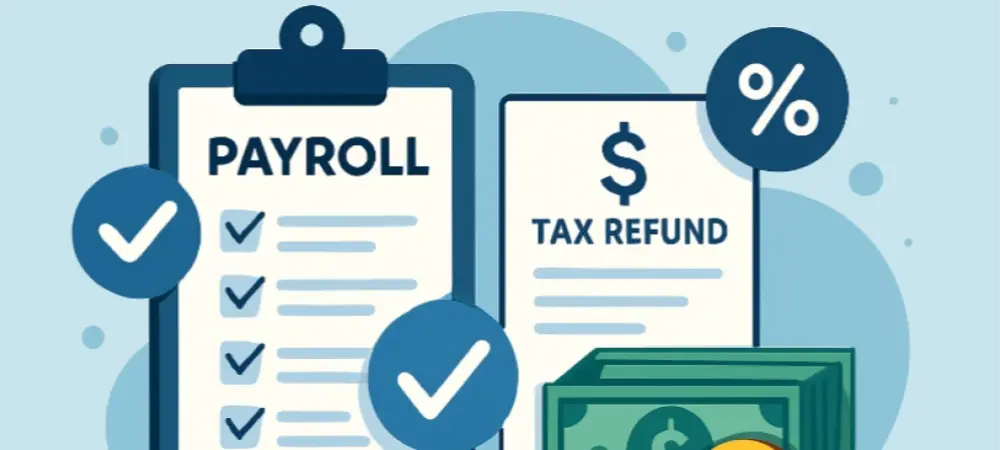Organizations play an increasingly vital role in the payroll ecosystem, impacting tax refunds directly tied to employee well-being. Understanding the nuances of this process is crucial for employers, as refunds typically arise when employees have overpaid taxes due to various factors such as incorrect tax codes, unclaimed allowances, or overdeductions via PAYE (Pay As You Earn). Although refunds affect employees, it is the meticulous submission of payroll data by employers that ultimately dictates the accuracy and timeliness of these refunds.
Essential Payroll Processes and Their Influence on Tax Refunds
Accuracy in Data Submission Processes
The accuracy of payroll submissions stands as a cornerstone in preventing taxation errors that lead to unexpected refunds. Employers must prioritize ensuring that every piece of payroll data submitted aligns with HMRC standards. Common causes of discrepancies in tax refunds include emergency tax codes, a challenge often encountered when an employee changes jobs mid-year. Without appropriate adjustments, employees may find themselves entangled in incorrect tax assessments, particularly if balancing multiple employments simultaneously. Employers can mitigate these risks by carefully assessing their payroll systems and refining the onboarding protocols for new hires. Furthermore, maintaining continuous open channels with HMRC and promptly updating any employee detail changes ensures smoother transitions and fewer payroll-based mistakes. Robust payroll systems equipped with leading software solutions can enhance the efficiency of data accuracy, reducing the need for time-consuming corrective measures. Having well-trained personnel, adept at managing these systems, ensures that tax codes are consistently and accurately applied across the workforce, allowing for a seamless tax refund process.
Recognizing and Addressing Mistakes
Mistakes in payroll can disrupt employee trust and financial stability significantly. Employers should implement frequent audits of the payroll data to catch and correct errors before they cascade into more substantial issues. Conducting training sessions for payroll administrators on changes in tax laws and regulatory adjustments ensures that the team remains up-to-date and prepared for any significant legal shifts. Additionally, fostering a thorough understanding of common refund triggers, such as inconsistencies in large deductions or new legislation, is essential for preemptive correction within the system.
Employers need to cultivate a culture where employees feel comfortable flagging anomalies in their payment summaries. Timely reporting from employees, even minor discrepancies, strengthens the organization’s ability to address errors promptly. By doing so, firms not only uphold transparency but also fortify their reputation as trustworthy entities invested in the financial welfare of their staff. Reviewing historical data for patterns and leveraging predictive analytics can further aid in preemptive error detection, suggesting systemic improvements.
Assisting Employees in Understanding and Accessing Refunds
Streamlining Documentation Access
The timeliness of tax refunds also depends on how efficiently employees can access their payroll documentation. Papers like payslips, P45s, and P60s are pivotal for tax assessments, and employers should ensure these documents are easily accessible. Digitizing these documents within a secure, organized payroll portal allows employees to retrieve necessary forms effortlessly at tax time, streamlining their refund processes. Providing regular updates on any legal changes affecting taxation and clear instructions on utilizing their dashboards reduces anxiety during filings. An informed workforce is an empowered workforce. Employers should proactively guide employees on understanding their payslips and tax deductions, and even about potential tax-saving opportunities through available allowances. Conducting workshops or webinars focusing on financial literacy can greatly enrich employees’ understanding, promoting a proactive approach towards managing their finances. Such efforts champion a culture of financial responsibility while reducing the burden of frequent inquiries during tax season.
Staying Current With HMRC Regulations
To ensure the highest level of accuracy in payroll processing, employers must remain abreast of HMRC regulations as they evolve over time. Any changes or amendments to these guidelines significantly impact payroll protocols and ultimately affect the tax refund outcomes for employees. Employers should subscribe to reliable updates and engage with tax experts who thoroughly understand these regulations to help integrate changes efficiently within existing operations. This strategic alignment with HMRC requirements strengthens both compliance and accuracy.
Employers should regularly evaluate their internal controls and procedures in sync with regulatory modifications to ensure they are capturing all necessary documentation and tracking changes promptly. Partnering with tax advisors and utilizing technological resources such as automated compliance software is critical in maintaining up-to-date alignment with evolving tax laws. These practices not only prevent financial discrepancies but reinforce an employer’s commitment to diligent corporate governance and fiduciary responsibility.
Building Trust and Satisfaction Through Effective Payroll Management
In the evolving payroll ecosystem, organizations play a pivotal role, significantly influencing tax refunds that are closely linked to employee welfare. A thorough understanding of this refund process is essential for employers. Tax refunds generally occur when employees overpay their taxes, a situation often caused by a variety of factors like incorrect tax codes, unclaimed allowances, or overdeductions through the PAYE (Pay As You Earn) system. While the outcome of these refunds primarily impacts employees, the responsibility of ensuring their accuracy and punctuality rests heavily on employers. It’s through the precise and accurate submission of payroll data by employers that the entire process, from tax withholding to refunds, is dictated. Employers must maintain vigilance and care in their payroll processes to ensure employees receive correct refunds. This diligence ensures that employees are not short-changed due to preventable errors, ultimately fostering a sense of trust and satisfaction within the workforce.

